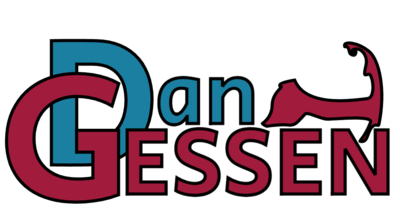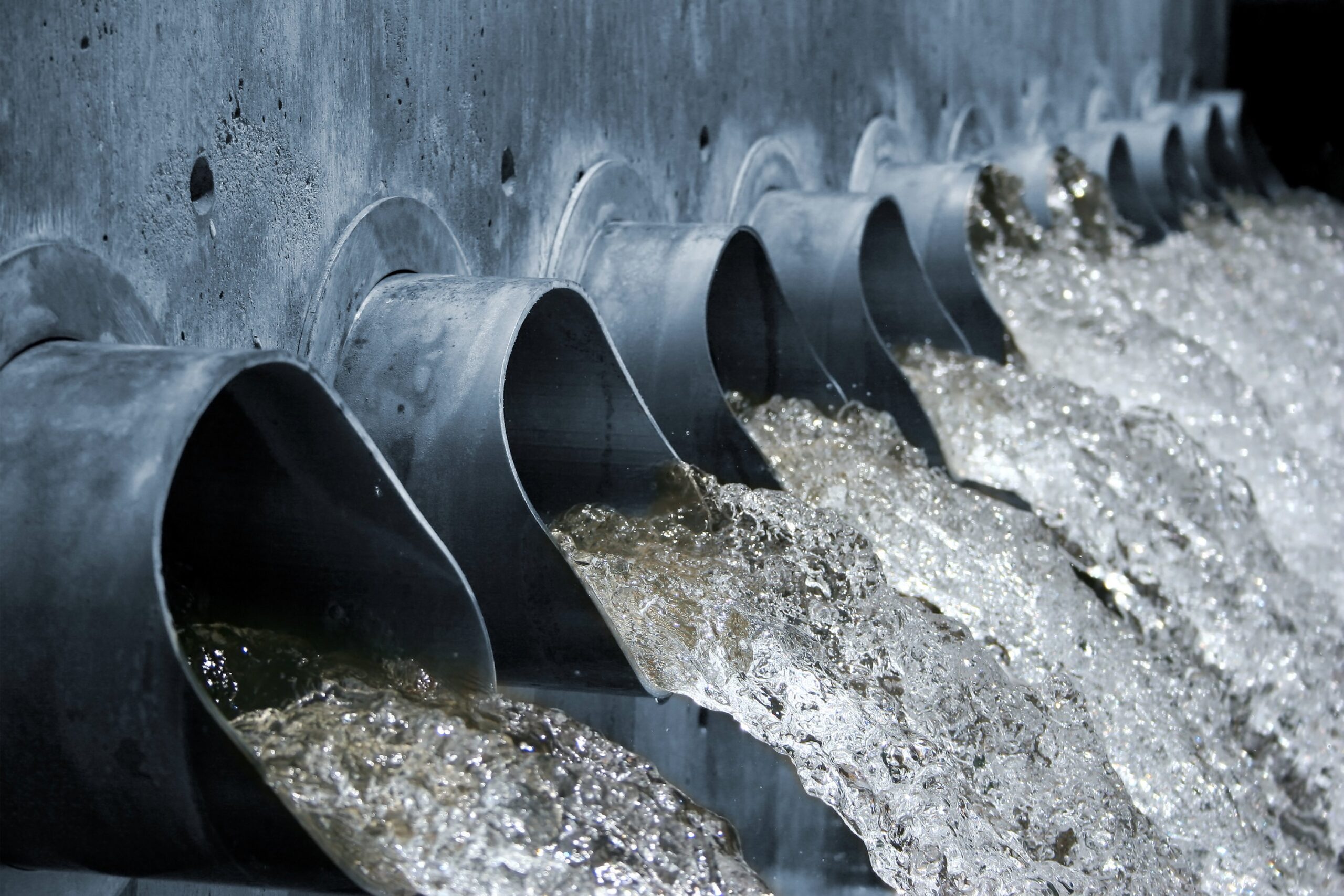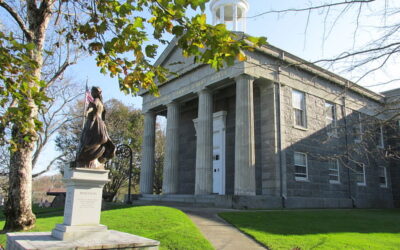The Issue
Few things have garnered as much consistent attention on Cape Cod as our wastewater crisis. From protecting our fragile ecosystem, to maintaining our economy, and facing our housing crisis, all these issues have become fundamentally intertwined with the nitrogen-filled sludge seeping out of our inadequate septic systems.
As this environmental calamity reaches the point of no return, residents and governments alike are realizing that something must be done. Yet, even with all this attention, it’ll be decades before we’re able to make a meaningful difference.
In the meantime, homeowners will be left carrying most of the burden. Simply replacing a septic system with one compliant to the new regulations can cost more than $35,000. As is too common, it’ll be those in our community who live paycheck to paycheck, those who can least afford it, who will be hit the hardest.
I’m proposing legislation to bolster our county septic loan fund with an investment of $5 million
I believe that the County, as the regional government of Cape Cod, should be a leader in making sure homeowners can overcome this devastating expense. That’s why I’m proposing legislation to bolster our county septic loan fund with an investment of $5 million, and am calling on the administration to use revenue generated from this fund to create a grant program to help Cape Codders in need. No one in our community should ever fear losing their home or falling into insurmountable debt over wastewater infrastructure.
The History
The state of our once vibrant, now algae-ridden ponds and estuaries is a nasty reality. An even nastier reality is that this was not an unforeseen environmental calamity, but a result of decades of bad policy engineered to protect property values at the expense of working people.
Even in the 1930’s, it was evident that pumping sewage into the same soil that houses our sole-source aquifer is a horrible idea. That’s why under the New Deal, and again throughout the 1970’s, and 1980’s, the federal government approached Cape Cod numerous times to build out our sewers at little to no expense. Every time, our local leaders turned down these generous offers for the very simple reason that they feared better sewering would lead to more housing.
Over those same decades, we’ve watched as the ponds and estuaries we grew up with have grown over with algae, lost all signs of life, and began emitting a foul odor. This is a direct result of the nitrogen and phosphorus seeping into the environment from hundreds of thousands of septic systems every single day.
It will cost of billions of dollars to sewer Cape Cod
Things have gotten so bad that the state has had to step in. In its new Title 5 regulations, which went into effect last month, the state has given the towns of Cape Cod a choice. Either build sewers to tens of thousands of homes, or your homeowners will have to shell out millions to rebuild their septic systems to incredibly stringent (almost impossible) standards. These upgrades, necessary though they may be, won’t be cheap. It’ll cost billions of dollars to sewer Cape Cod, and almost $490 million just to upgrade the septic systems in Falmouth alone.
The state and the federal government will help in some ways with the municipal projects and tax credits, but the homeowner will largely end up on the hook for connecting to the new town sewer or rebuilding their septic system. An expense that can go anywhere from $10,000 to over $36,000.
I strongly believe that this is our regional government’s mandate to do everything we can to help homeowners overcome these out of pocket expenses.
The Septic Loan Fund
The county septic loan fund, recently renamed the Aquifund, is the single best tool the county has for helping homeowners pay for these costly upgrades. The Aquifund is a revolving loan fund that allows residents to spread the cost of these upgrades over twenty years at low-to-zero percent interest rates.
The county loans money at a zero percent rate for low and medium income households
The Aquifund loans money at incredibly low rates based on your household income. The county loans money at a zero percent rate for low- and medium-income households, at two percent for upper-middle class income earners, and at four percent for those making more than 180% of the area median income (AMI).
One of the best parts of this program is the creative way it can stretch limited county resources and remain self-sufficient. By using an income-based scale to determine its interest rate, we’re able to help lower-income residents, while using the revenue from high-income Cape Codders to cover administrative costs and reinvest in the Aquifund. Just these reinvestments alone have increased the principal of the Aquifund by millions of dollars over the years.
By expanding the county’s investment we’ll be able to grow the returns we receive from the fund
By expanding the county’s investment in the Aquifund we’ll be able to further grow the returns we receive from it, and create a dedicated revenue stream to help citizens up and down the Cape who can’t afford to comply with the new environmental standards.
My Proposal
Due to the county’s revenue being tied to home sales, over the course of the pandemic housing boom, the county saw an unprecedented amount of revenue leading to an $18 million surplus. I propose we invest $5 million of this surplus to bolster the Aquifund program, ensure its viability for years to come, and most importantly, expand its ability to help the lowest income homeowners in the region.
We should invest in our own program, and not just become a middle-man for state funds.
The Aquifund currently receives state reimbursement for the loans it gives out, meaning that the state will continue to loan money to the program to meet the demand of our community. However, I believe there is a strong case to be made for us to invest in our own program, rather than allowing it to become a middle-man for state funds.
Today, the state is prioritizing the wastewater crisis on Cape Cod. However, it’s our responsibility to ensure that residents of Barnstable county continue to remain a priority no matter how long this crisis lasts, no matter who is in charge on Beacon Hill, and no matter if wastewater continues to be a priority for the state a year from now, five years from now, or decades from now. Our wastewater issue isn’t going anywhere.
Unlike most programs, the Aquifund is a revolving loan fund, any funds we invest in it will be paid back to the county. We’ll be able to use a singular $5 million investment to provide for tens of millions of dollars worth of loans over the lifetime of the program. There is no risk that we commit these funds only to then realize that federal or state grants could have helped instead, and if by some miracle wastewater ceases to be an issue, these funds can always be repurposed.
This investment will bring hundreds of thousands of dollars into the county every single year.
Most importantly, putting money into the fund would be an investment. If we reserved county funds for the two-percent and four-percent loans, while using state reimbursement for the low AMI loans, we would be able to maximize our revenue from this fund while decreasing the interest rate we pay to the state. This investment could bring hundreds of thousands of dollars into the county every single year. This is the kind of revenue we would need to create a desperately needed grant program.
Creating a Grant Program
Finding oneself tens of thousands of dollars in debt overnight can be devastating to families who make up the backbone of our local economy. The county must create a need-based grant program to help our working families.
This revenue could help hundreds of local families make payments every year
By earning between two and four percent on the $5 million we put into the Aquifund we could generate anywhere from $100,000 to $200,000 annually. This money may seem like a drop in the bucket of our billion dollar problem, but by targeting the program towards those who are struggling to make ends meet, this revenue alone could help hundreds of local families make payments on their wastewater systems every year.
The county has a smaller budget than many towns on the Cape. Our role is not to swoop in with vast resources and pay our way out of issues. Our role is to come up with creative, revenue generating solutions to our region’s unique issues, and bring stakeholders to the table to further the positive impact of our initiatives.
The Way Forward
It should come as no surprise that the decades-old weaponization of our environment against the working class through poor wastewater policy has backfired tremendously. As a result of these policies, in 2023, we find ourselves at the three-way intersection of a worker shortage, a housing crisis, and an environmental catastrophe. The burden of these being borne by the employers, working people, and youth of our towns.
The county lacks an ability to solve these issues single-handedly. However, we have the unique ability to lead on creative, targeted solutions. We must do absolutely everything in power to solve the wastewater crisis while also not allowing our solutions to exacerbate the already growing fault-lines in our strained economy.
By making this much needed investment in the Aquifund, we’ll be able to bolster an amazing regional resource that serves as a lifeline for homeowners, while also developing a revenue stream and grant program that can ensure that no Cape Codder has to fear losing their home in the face of our growing wastewater crisis.




